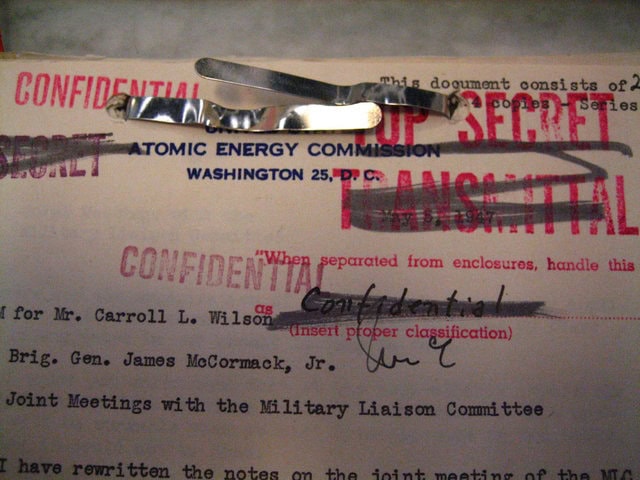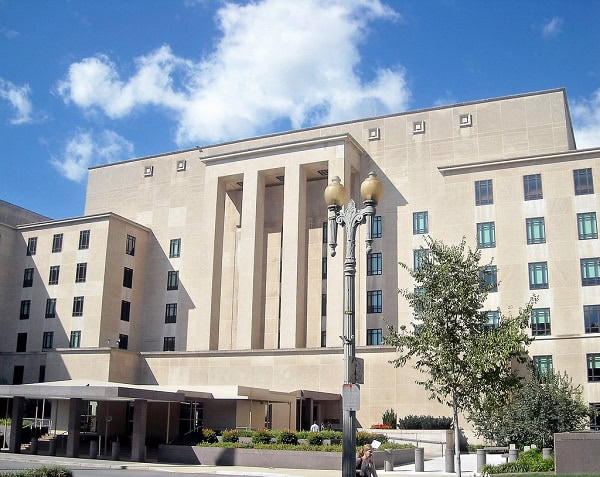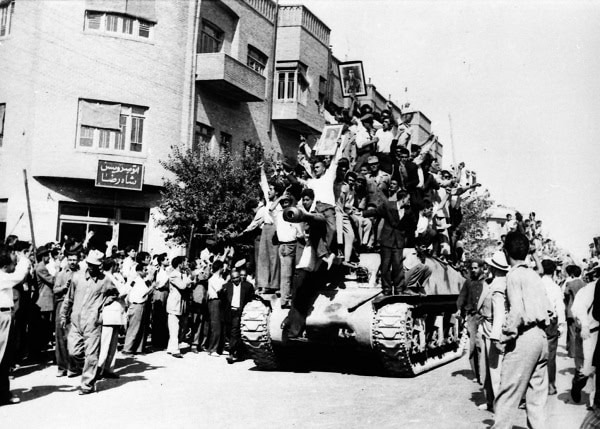The Committee met at the State Department on November 16 and 17, 1989. Present were Warren I. Cohen and Michael H. Hunt, representing the Society for Historians of American Foreign Relations; Ronald H. Spector, representing the American Historical Association; Anne H. Van Camp, representing the Society of American Archivists; Paul M. Kattenburg, representing the International Studies Association; Stephen T. Zamora, representing the American Society of International Law; and , representing the Organization of American Historians. As always, William Z. Slany and his colleagues in the Office of the Historian provided helpful information and pointed to the key problems requiring discussion.
The Committee re-elected Professor Cohen as chairman. However, before he could draft this report, he felt compelled to resign because of differences with the Department over policy. Consequently, this report is both belated and less detailed than has been customary. Attention is given only to areas of major importance.
In 1989, ten volumes of Foreign Relations of the United States (FRUS) were published, and ten to thirteen more are expected in 1990. (One of the latter dates back to the 1951-54 triennium.) However, not until at least 1992 will all volumes covering the Eisenhower years be available. In other words, as the Committee feared from the outset, President Reagan’s directive that documents through 1960 be available by 1990 has not been implemented. For this failure there are numerous causes, among them the ever-escalating volume of manuscript material to be examined, budgetary restrictions, and the perennial problem of declassification. (In some instances, review takes as much as nine years.)
The Committee, although favorably impressed by the energy and skill of the Historical Office, believes that office cannot hope to speed up the timetable nor indeed to keep FRUS publication up to standard unless changes are made in the very conception of the series. Because of the increasing masses of material, it simply is no longer possible to prepare, declassify, and publish a record as detailed as that to which the scholarly professions have become accustomed. Forced to choose between thin but comprehensive coverage and in-depth treatment of the most important areas, the Committee favors the second course. If this approach is adopted, FRUS volumes will focus on major crises and developments, while brief summaries and historiographic and bibliographic guides will be provided for less important decisions and themes. This scheme clearly has shortcomings and, if implemented, will require painful decisions by the compilers of FRUS volumes. The Committee welcomes the Historian’s plan to involve it in the decisions and to seek counsel from scholars with expertise in specific areas.
Preparation of future volumes in the series, those covering the Kennedy and Johnson administrations, is seriously hampered by staff shortages in the presidential libraries. The National Archives and Records Administration has made only modest efforts to overcome this problem, and the Committee urges that greater attention be given to it. Evidence of concern at the highest levels of the State Department seems required.
We also urge the State Department to use its influence to reverse the decision taken in 1986 by the Superintendent of Documents to remove deposit libraries from the distribution list for FRUS volumes. Although this decision saves only a small amount of money, it deprives the scholarly community and, by extension, inquiring citizens and the nation at large of convenient access to the record of its government’s foreign policy decisions.
As in all recent years, in 1989 the Committee was forced to devote primary attention to declassification matters. The Committee does not believe that it can fulfill its responsibilities either to the Department or to the associations its members represent unless it is given much greater understanding of declassification policies and practices. Presently, it is denied knowledge of the general guidelines establishing policy and of the implementation of those guidelines in specific cases. Consequently, it is hampered in its ability to offer advice to the Department, and it cannot assure the scholarly community that FRUS accurately presents the historical record. Most responsible scholars recognize that some material cannot be declassified, even after a substantial number of years, but all would agree that such cases should be held to a minimum. We cannot be sure that this is the case. In 1989, Chairman Cohen reached an understanding with the declassification office, which, while not entirely satisfactory to him or the Committee, promised to improve the situation. It was the Department’s refusal to carry through on this agreement that led to his resignation.
For the Committee, the problem was starkly revealed during discussion of the recently published volume, Iran, 1951–1954. An expert in the field who reviewed this volume for the Committee concluded that, because of extensive deletions, the volume presented not only a woefully incomplete but even an entirely misleading account of events surrounding the ouster of Mosadeq. Since the general picture is already well known (and the CIA representative in Iran has published his memoirs, presumably with the Agency’s concurrence), the Committee fears that excessive deference may have been paid to security considerations. It regrets the lack of access to classified materials that might lay these fears to rest.
The Committee discussed inserting a disclaimer in those FRUS volumes that, because of refusals to declassify, distort the historical record. But such an approach is attended by serious problems. It is by no means clear that any disclaimer, beyond the most banal, would itself be declassified. Additionally, it may well be that the insertion of a disclaimer might encourage departments and agencies to resist declassification on the ground that the disclaimer had already made it clear that the record was not complete. This is an important question, on which the Committee has as yet taken no firm position, nor can it easily do so until it possesses all the facts.
The Committee hopes that the Department of State will be willing to engage in a dialogue designed to preserve what has been, for over a hundred years, the most distinguished record of its kind, a testimonial to the American belief that, in a republic, citizens have a right to know what is being done in their name and that officials have an obligation to meet this expectation.
Bradford Perkins
Professor of History
University of Michigan, Ann Arbor


